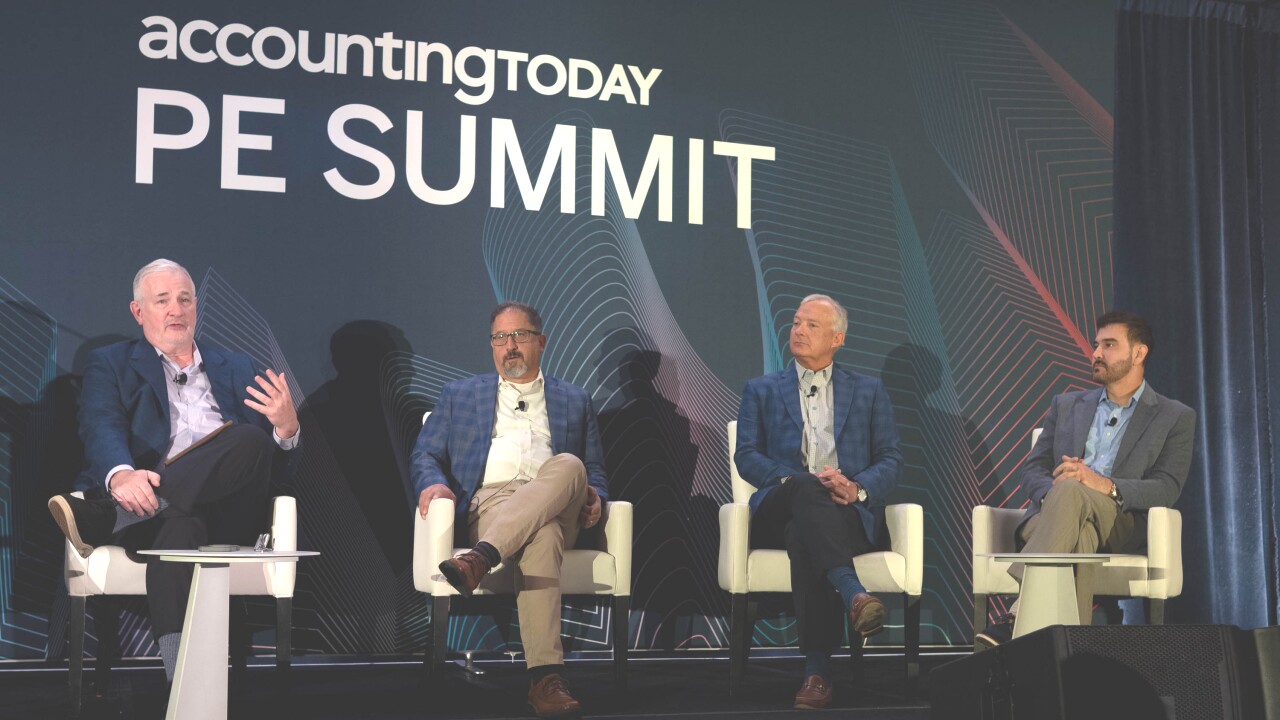IMGCAP(1)] It’s not out of the ordinary for hip tech companies today to turn their attention — or at least pay convincing lip service — to attracting women, minorities, millennials and all manner of historically (or currently) disenfranchised or underrepresented employee groups. Within the accounting technology space, Xero has positioned itself as one of those companies; but at its recent conference in San Francisco, its focus on the issue went far deeper than I expected. The topical center around which Xero orbited the usual conference fare of new products, tech insights and company news, was unexpected: women in the workplace.
At Xerocon 2016, there were more than just one or two sessions dedicated to the subject of an inclusive workplace, and executives seemed invested in the idea in a way that was meaningful rather than superficial. Xerocon presented multiple talks and panels on the subject, and used the familiar talking point of “women in the workplace” as a scaffold for a larger discussion about how to build an effective, happy and loyal workforce through diversity.
Day two of Xerocon 2016 began with a “women in business” breakfast panel, followed by a keynote on the same subject. These talks did more than just run down the list of by now well-known topics such as childcare needs, parental leave, work flexibility and how women improve workplaces just by their presence and differentiated approaches. The group of women presenting their ideas told deeply personal stories and weren’t afraid to touch on subjects that are usually hands-off in similar forums.
For instance, Xero’s Amy Vetter brought up the “queen bee syndrome,” a phenomenon first named in 1973 to describe how women in power are overcritical of female subordinates and treat them negatively. In a corporate setting, or really, any setting that isn’t an actual feminist forum, discussions of inclusiveness can quickly either become lost in an impotent quagmire of trying not to offend; or lose direction in the difficult subjects such as this, which suggests that women, too, have a hand in their own oppression. The women on this panel, however, deftly avoided such pitfalls by succinctly recalling the root causes of queen bee syndrome – women battling imposter syndrome and trying to hide in plain sight by preventing other women from crowding the space they think they have won by accident – and sharing personal stories to illustrate the problem in action. If this open attitude translates from the conference floor to the Xero office floor, it may be why the company manages to retain talent like Vetter.
Vetter herself was the victim of queen bee syndrome at her first job out of college at a Big Four firm. “Successful women don’t look like you,” said her female manager of two years, who had made a point of humiliating Vetter in front of a room full of clients when she was a brand-new employee. Vetter admitted that she still feels embarrassment admitting this now, several years and many successes later. But Vetter has now, by all appearances, found a good home at Xero. The company allows her to work remotely from Cincinnati, “visiting” the office in San Francisco via Google Hangouts (when she’s not traveling around the world in her role as global VP of education and head of accounting). While this setup allows her to be more of the parent she wants to be to her two boys (equitably co-parented by her husband, she is quick to note), it also — arguably more importantly — allows her to run her own side business, a yoga studio in Mason, Ohio.
I say “more importantly” because it is important to note that “women in the workplace” don’t just come with the standard set of specialized needs tied to child- and home-care. Women are an economic powerhouse. A 2015 Catalyst.org report found that women control 73 percent of all household spending. At Xerocon, Ingrid Vanderveldt, and entrepreneur and founder and chairman of Empowering a Billion Women by 2020, an online financial empowerment community for women leaders and entrepreneurs, said that while making more and more money can become like a game for men, women tend to want to reinvest earnings back into the economy. Vetter’s yoga studio is an example of this trend at work, and the reason she is able to make a meaningful contribution to her local economy is because of the stability and flexibility Xero offers her. While flexible hours and the ability to work from home is most often associated with the needs of parents (specifically mothers), they are beneficial to all employees for reasons that go beyond parenting and home-care needs, such as starting local businesses or just generally being more productive and happy company workers.
A New Generation
The fight women have been waging to get better parental leave, better childcare, and flexible hours to allow them to be at home (or at their other business) more is now also being waged by … Millennials. Or, in other words, everyone under the age of 35 (ish). Leave it to the much-maligned millennial generation to demonstrate that feminism is about everyone, not just women. As a company, Xero has a strong grasp on the ideas Millenials bring to the table, and how they fit into the larger goal of a better workplace for everyone.
Another Xerocon talk titled “Great technology attracts great talent” was focused on Millennials in the workplace. “It’s not really about work-life balance,” Vetter said. “It’s about work-life integration. Millennials aren’t lazy – in fact, they work more hours on average [than Generation X and Baby Boomers] because they might still be working at 2 a.m., if not at 2 p.m.”
According to Vetter, the keys to attracting Millennials to the workplace are six-fold. They want mentorship, collaboration culture, room to learn, growth opportunities, a fun work environment, and a mission and product to believe in. These areas of interest make Millenials women’s natural allies in the workplace. For instance,
Mentorship and representation are key elements of the new, smarter workforce, and commitment to this idea seems to have been baked into Xero since the start. Xero founder and CEO Rod Drury took the mic following the Xerocon women in breakfast panel to add his impromptu two cents to the conversation. He explained how when Xero was putting together its first board of directors, he found himself with a slate full of men. Recognizing that this was a problem not just for appearance’s sake, but also for company culture, he began a search for woman board members.
“At the time, there were only a small number of director-level women in the finance industry in Australia and New Zealand that everyone would approach to be on their boards,” he recalled. “So I looked around and found a woman who was up and coming at National Australia Bank. She was in a manager-level position, but was clearly going to be a superstar.”
Today that woman, Lee Hatton, is CEO of an online bank and still serves on Xero’s board.
This is the kind of future-focused thinking that can help companies develop more dedicated, effective and loyal workforces. The proof is in the pudding: After I tweeted about the topics covered in this column at Xerocon, Xero community manager Catherine Walker contacted me to tell me she’d been working for Xero “10 years and counting”—loyal as the day is long to a company she feels values her.





